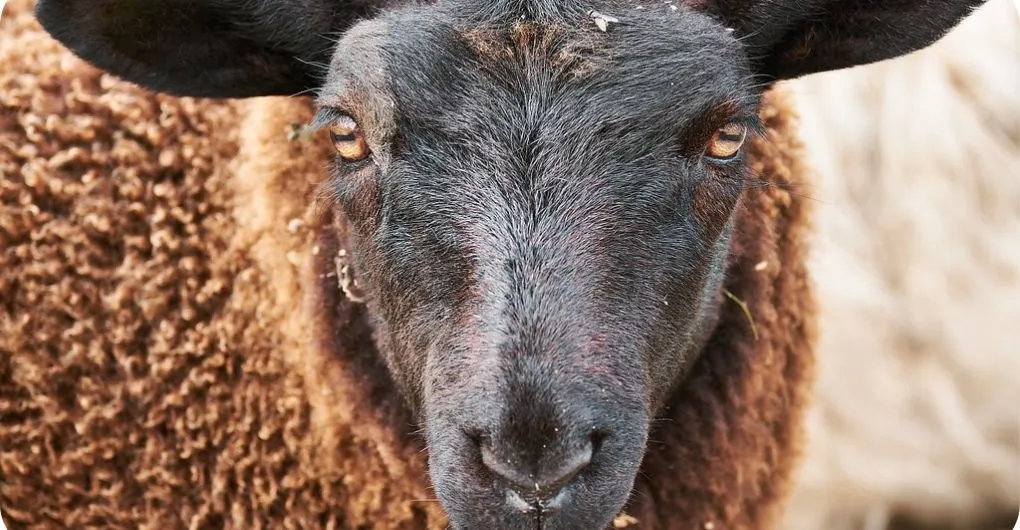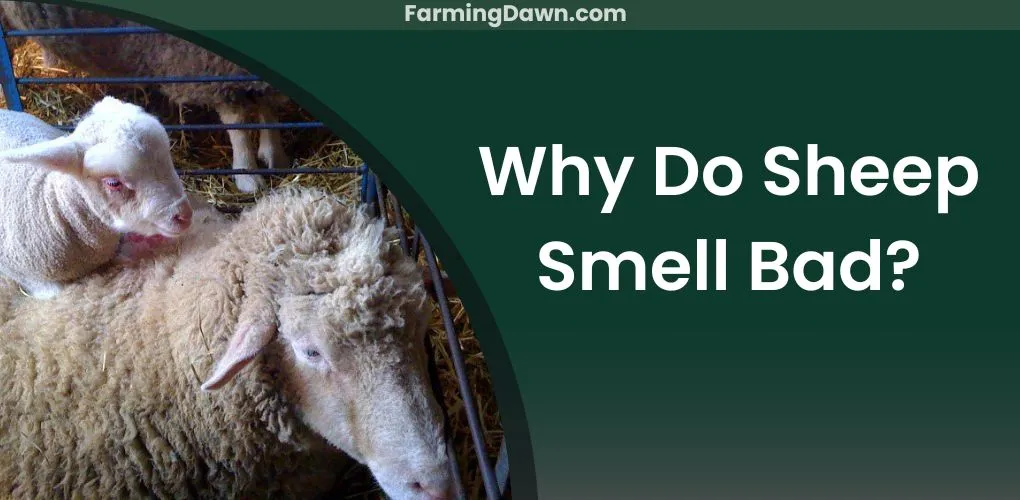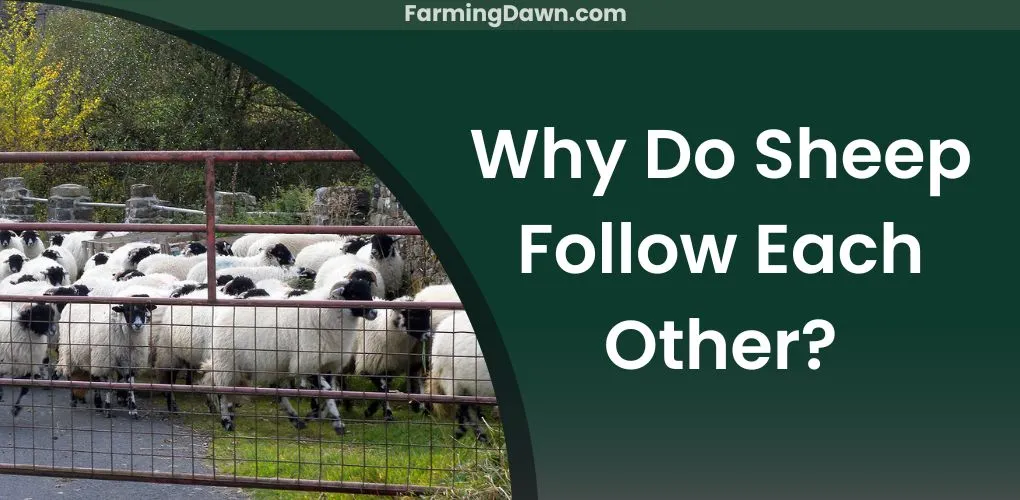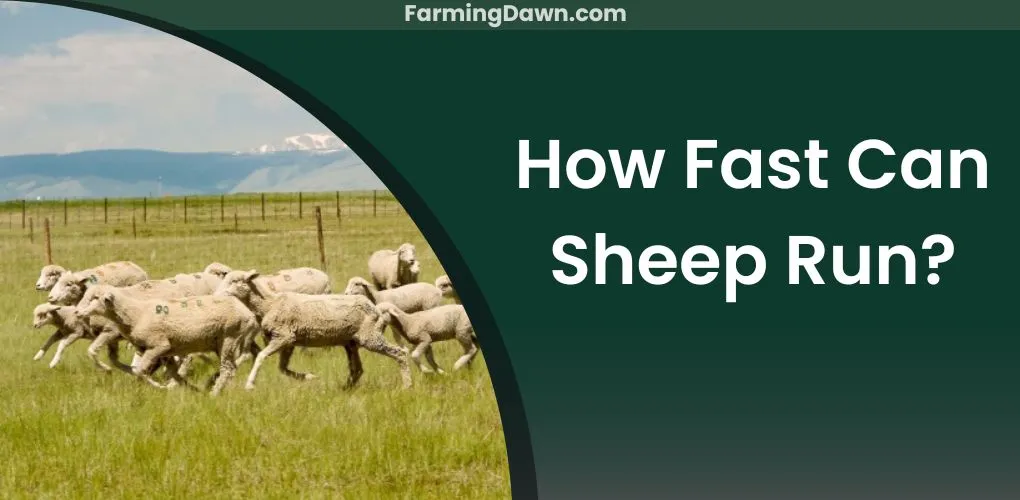As a farmer and caretaker of the land, I’ve often found myself thinking about the unusual ways that animals behave. Moreover, I’ve been wondering lately: “Why do sheep headbutt each other?” It may seem like a simple question, but the answer offers fascinating new information about these hairy creatures’ primal instincts.
Today, I will be talking about the reasons behind the seemingly aggressive behavior of sheep and shed some light on their complex social dynamics.
What is Headbutting?
Headbutting is a common behavior among sheep where they forcefully bump their heads into each other or objects. Other animal species, such as goats, deer, and buffalo, have also been found to exhibit this behavior, therefore it is not specific to sheep.
There are different types of headbutting observed in sheep, including:
- Play headbutting
- Aggressive headbutting
- Defensive headbutting
Young sheep are known to play headbutt each other to create social hierarchies within the flock. Adult sheep, on the other hand, exhibit aggressive headbutting as a dominating behavior that they utilize to establish dominance and gain access to resources.
Sheep are known to engage in a defensive behavior known as defensive headbutting when they feel threatened and need to defend themselves from predators or other dangers.
Why Do Sheep Headbutt Each Other?
Sheep headbutt each other for various reason such as to show dominance and hierarchy within the flock, for the purpose communication, or as an indicator of being playful.
Sheep headbutt to show dominance and hierarchy
Sheep are social animals that live in flocks or herds. Within a flock, there is a hierarchy, with some individuals having a higher status than others. Dominance is the capacity of a single individual to assert their status over another. Sheep gain dominance through physical interactions like headbutting.
Sheep headbutt other creatures to show dominance. When two sheep headbutt each other, the victor is usually the more powerful of the two. Sheep utilize headbutting as a strategy to show off their strength and assert dominance. Rams most commonly exhibit this behavior when they are competing for the attention of ewes during the breeding season
Sheep headbutt for Communication
Sheep headbutt to exchange messages with one another. Sheep may headbutt to announce their presence to the flock or to draw attention from others. For instance, a sheep might headbutt another sheep to signal their presence or to urge them to move out of the way.
Moreover, a sheep may also utilize headbutting to convey other emotions including playfulness, rage, or obedience. While enjoyable headbutting could be an attempt to start a game with the other person, aggressive headbutting might be an attempt to establish authority.
Sheep headbutt for Playfulness
Sheep are social, playful creatures that enjoy interacting with one another. The formation of ties within the flock and the socialization of sheep both benefit from playfulness. Sheep can also pass the time and relax by being playful.
Headbutting is a common form of play in sheep. To develop their muscle and coordination, young lambs and sheep frequently engage in headbutting activities. Even adult sheep enjoy playing headbutting games with one another to relax and bond.
Do all Sheep Headbutt?
No, all sheep do not headbutt each other. As a farmer, I have observed that different breeds, genders, and ages of sheep exhibit varying behaviors
Differences in behavior between breeds
Each sheep breed has a wide assortment of characteristics and behaviors. For instance, some breeds, like the Dorset and Hampshire, are renowned for being submissive and amiable towards people, whilst others, like the Merino and Jacob, might be warier and more distant. Certain breeds, such as the Scottish Blackface and the Shetland, are considered to be more violent than others when it comes to headbutting.
Differences in behavior between genders
Female sheep, or ewes, are less likely to headbutt than male sheep, commonly known as rams. Their innate propensity to assert dominance over other males during mating season is the cause of this behavior. Yet not all rams headbutt; some are extremely mild. Ewes, on the other hand, are more nurturing and are typically less aggressive.
Differences in behavior between ages
Age has an impact on the behavior of sheep as well. Lambs, for example, can headbutt each other as a type of play. They are also curious and lively. Nevertheless, as they become older, they behave differently, becoming less playful and more aggressive.
Adult sheep, particularly rams, may headbutt, to assert dominance over other males or to defend their flock from predators.
Why do Sheep Headbutt Humans?
Sheep headbutt humans for various reasons. One reason sheep headbutt humans is to establish authority or a hierarchy, among other things. Animals might engage in this behavior when they are competing for food, a mate, or other resources.
However, sheep can also show affection or playfulness by headbutting. Sheep may headbutt the people who look after them to demonstrate excitement or as an indicator of being cheerful.
It’s essential to keep in mind that sheep are naturally non-aggressive creatures. A sheep’s violent headbutting of people may be an indication of stress or discomfort. To interpret what they are attempting to say, it’s crucial to pay attention to how they act and their body language.
Why do Sheep stare at you?

Sheep are naturally observant creatures. They tend to look in confusion when they come across something novel or strange. So, if you’re in the field with a group of sheep, they may only want to get to know you better.
Another reason why sheep stare is that they’re gregarious animals. Their body language and eye contact serves as their primary form of communication, and they might be attempting to connect with you in the same manner.
Last but not least, it’s possible that the sheep feel intimidated or uneasy around you. If you’re moving quickly or making loud noises, you might be unintentionally scaring them.
Do Sheep Headbutt to Show Affection?
No, sheep don’t headbutt to show affection. Naturally, sheep, especially rams, headbutt one another. It is a way of communicating within the flock to establish dominance and hierarchy. In fact, headbutting is seen as an aggressive or possessive gesture.
However, it’s important to keep in mind that headbutting may also be a kind of play and a way for sheep to vent their frustrations. Lambs and young sheep are more likely to engage in this behavior since they are still learning social cues and experimenting with their boundaries.
How to Stop a Sheep from Headbutting?
Most of the time sheep usually headbutt each other as an indicator of being cheerful, but it can be dangerous for farmers and other animals on your farm, especially if the sheep are large and aggressive. You can implement the following tricks to stop the sheep from headbutting.
Establish yourself as the leader
Establishing your position as the leader is one of the best strategies to prevent a sheep from headbutting. Because they are sociable creatures, sheep look for a capable leader to follow.
If you can prove that you are the one in charge, they won’t be as inclined to oppose your authority. Build a close relationship with your sheep by spending time with them. They will obey you if you show that you are in charge.
Use deterrents to tame the Sheep
You can employ deterrents to stop a sheep from headbutting if they still do it after you’ve established yourself as the leader. When they headbutt, you can spray them with water from a spray bottle. Additionally, you can startle them and get them to stop their behavior by making loud noises like clapping or shouting.
Provide enough space
Sheep headbutt when they feel crowded or threatened. Make sure there is sufficient space for your sheep to move around without being constrained. Stress and aggression brought on by crowding can worsen headbutting behavior. Giving your flock enough room will not only stop headbutting but also enhance their general health and well-being.
Neuter aggressive rams
Finally, think about neutering your aggressive ram if they are headbutting other sheep or people. Rams can become less aggressive and less likely to headbutt after being neutered. It is crucial to remember that only a veterinarian or other qualified practitioner should neuter your ram.
Why do Female Sheep Headbutt?
Female sheep headbutt as a means of asserting dominance in their social hierarchy. Ewes establish a pecking order within their flock, and headbutting is a way to maintain their position in that order. This behavior is more prevalent, during the breeding season when resources like food and water are scarcer and there is greater competition for them.
Moreover, headbutting is an essential part of the mating process. Male sheep, or rams, will approach ewes and headbutt them during the breeding season. This is a sort of courting when the ram displays its power and strength to entice potential partners.
Final Thoughts on Why do Sheep Headbutt
In summary, sheep headbutting is an intriguing habit that is rooted in these animals’ instincts. This behavior is crucial to sheep life, whether it’s for communication, asserting dominance, or just reducing stress.
Understanding this behavior can help us appreciate these intriguing animals and their distinctive communication methods. I hope this post addressed all of your inquiries about why do sheep headbutt each other.






